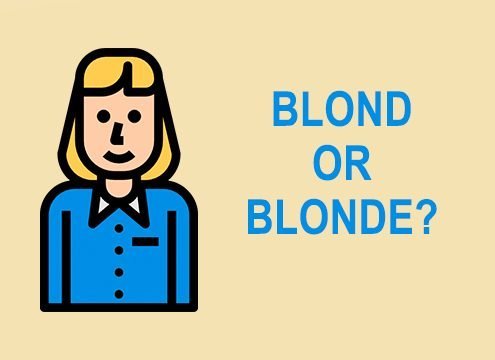
Cook
“Cook” you will know. A cook is a person that works in a kitchen and “to cook” is the verb. So a cook (or chef)
Si quisiera mejorar o aprender inglés, este blog podría ser su ayudante.
Cada semana algo nuevo se publica. Si quisiera recibir una notificación de un tema nuevo por correo electrónico solo tiene que suscribirse a nuestro blog desde el formulario del final de la página. Ir al formulario.
Su correo electrónico sería guardado de manera confidencial para que ninguna otra persona pueda usarlo.
El blog será en inglés, y únicamente damos explicaciones mínimas (en español) para aclarar algo, para traducir algo que podría ser difícil, o para acelerar su entendimiento.
El autor es Aimee, directora y una especialista en educación hablante nativa.

“Cook” you will know. A cook is a person that works in a kitchen and “to cook” is the verb. So a cook (or chef)

Be careful with adjectives. They are important to provide useful information. However, some mortals, even educated Englishmen, make thoughtless (desconsiderado) mistakes with adjectives and cause

“Bone” (hueso, espina) and “bones” you may understand. There are some interesting idioms and expressions that use the word “bone”. Contemplate these: Mr. Morales has

In English a man is “blond” (rubio) and a lady is “blonde”. Blond and blonde mean fair complexion and light-coloured hair. In this context “blonde”

“Wind” (viento) you will know. Here the focus is on some idioms that use the word. Examine these: Mr. Sanchez is waiting to see which

These two words are often very similar and a source (fuente de) of confusion. Both words are third person singular. Let´s start with “each”. “Each”

There was an article by a well-known (muy conocido) English writer, Tim Stanley in the Daily Telegraph on Friday 13/07/18. The article was about Mr.

The word “onion” (cebolla) you may know. You may have eaten “onion rings” (de cebolla rebozadas) and onion soup. Here the interest is in two

“Heat” (calor) you may know. There is a phrasal verb “heat up”. One can heat up a dish (calentar, recalentar), and a debate can heat

“Water” you know, and perhaps “pour” (verter, servir) too. “Shall I pour the tea” will be a phrase you will hear if you go for

English people like to drink tea (té), and sometimes, in the afternoons for a special occasion, they will have “afternoon tea”, meaning tea and some

Probably. A juggler (malabarista) works in a circus (circo). He might throw several balls or plates in the air and hopes not to drop any

Esta web utiliza cookies para que podamos ofrecerte la mejor experiencia de usuario posible. La información de las cookies se almacena en tu navegador y realiza funciones tales como reconocerte cuando vuelves a nuestra web o ayudar a nuestro equipo a comprender qué secciones de la web encuentras más interesantes y útiles.
Las cookies estrictamente necesarias tiene que activarse siempre para que podamos guardar tus preferencias de ajustes de cookies.
Si desactivas esta cookie no podremos guardar tus preferencias. Esto significa que cada vez que visites esta web tendrás que activar o desactivar las cookies de nuevo.